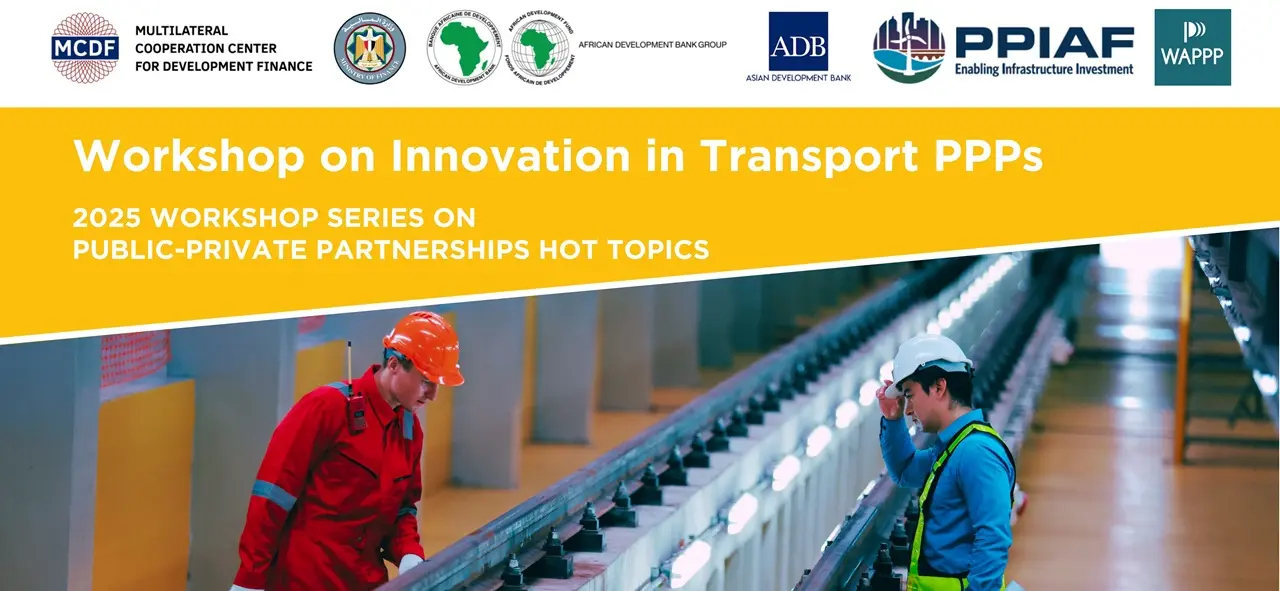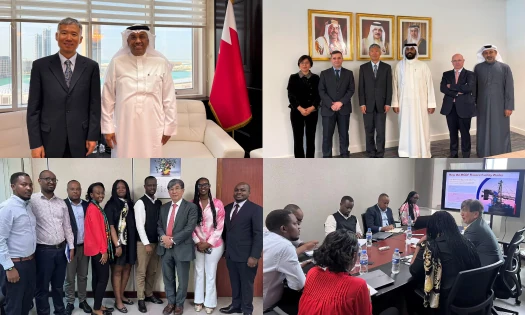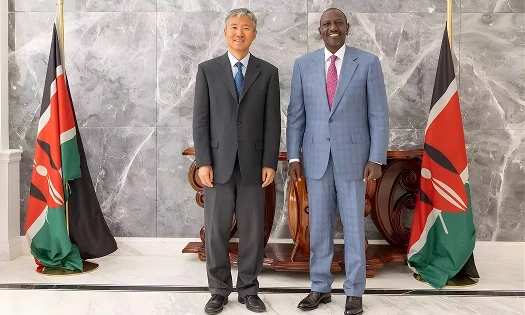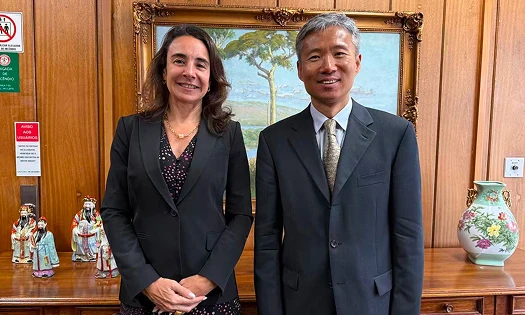Innovation in transport public-private partnerships (PPPs) critical to sustainable connectivity growth was the focus of the third workshop of the Multilateral Cooperation Center for Development Finance’s (MCDF) 2025 PPP “hot topics” series on 21 May. The virtual series is co-organized with the Egypt Ministry of Finance, African Development Bank (AfDB), Asian Development Bank (ADB), World Bank-hosted Public-Private Infrastructure Advisory Facility (PPIAF), and World Association of PPP Units and Professionals (WAPPP).
During the third workshop in the series, PPP experts from governments, multilateral development banks, and partners examined opportunities, challenges, lessons, and sustainable development benefits pertaining to next generation transport PPP tools and approaches. Among the examples they discussed were performance-based road maintenance contracting, green and smart mobility PPPs, and nature-based solutions.
In welcome remarks, Mr. Ekow Coleman, Principal Infrastructure Investment Officer at AfDB, provided context for the workshop by outlining AfDB’s PPP strategy and recent work. It was followed by an overview of transport PPP trends by Dr. Ede Ijjasz, Senior Advisor to MCDF’s CEO and the workshop’s moderator and strategic lead. He noted the sector’s technological changes, new small-scale mobility arrangements, climate mitigation and preparedness actions, and fiscal and market challenges.
To watch the workshop’s overview presentation on transport PPP trends, click here
To see the full session and related materials, visit MCDF’s digital platform, JIGSAW
Mr. Eric Lancelot, Lead Transport Specialist at the World Bank, presented on performance-based PPP contracts in Latin America that seek to tackle proactive road maintenance challenges. He described experiences and lessons learned in Brazil and Panama, where more than USD2.5 billion has been invested in this type of PPP contract, and how it can significantly reduce road infrastructure lifecycle costs, lower vehicle operating costs, and increase public savings compared to traditional PPP contracts.
Mr. Jit Bhattacharya, co-founder and CEO of Basi-GO, introduced his innovative, Nairobi-based start-up that is providing low-carbon and operationally low-cost electric buses in Kenya, Rwanda, and other African countries through an innovative lease arrangement. He said operators pay a mileage-based fee to lease a bus each day. He went on to explain the mechanics of the lease and how it has allowed his company to realize a substantial return on investment even in the absence of subsidies.
The workshop continued with case study presentations, including a look at innovations in gender mainstreaming in transport PPPs in Asia by Ms. Radhika Behuria, a gender specialist at ADB. She discussed features for improving transport safety and accessibility for women that were integrated in ADB’s GreenCell Electric Bus project in India and Davao Public Transport Modernization project in the Philippines, such as lighting and guidance signs, helplines, and security and incident response training.
Mr. Sithembiso Mkwanazi, Senior Manager of Performance Monitoring and Evaluation at South Africa’s National Treasury, concluded the workshop with a presentation on his country’s transport PPP portfolio and the role of its Government Technical Advisory Center (GTAC) in preparing and supervising PPP contracts. He discussed the PPP agreement covering the design, construction, finance, operation, and maintenance of the 80-kilometer high-speed Gautrain express commuter rail system linking Johannesburg, Pretoria, and O.R. Tambo International Airport. He also described the PPP approach to three toll road projects and GTAC’s on-demand support for PPP contract preparation, contracting, and supervision.
Contact
David Hendrickson
Senior Communications Officer
Mobile: +86 185 0114 6758
david.hendrickson@themcdf.org







